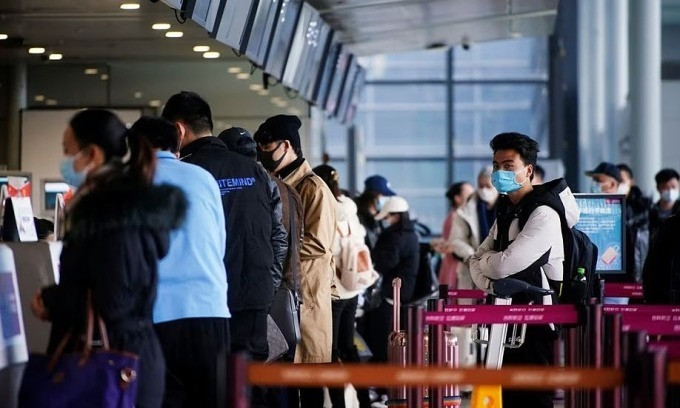In an effort to attract international tourists, China has begun to ease visa requirements for international visitors to the country.
China has reached an agreement with Thailand to grant permanent visa exemptions to citizens of both countries from March 2024. This is the latest move in Beijing's efforts to attract foreign tourists amid economic difficulties following the COVID-19 lockdown.
The visa waiver plan, announced by Thai Prime Minister Srettha Thavisin on January 2, comes after Thailand in September exempted Chinese tourists from visas until February.
China's Foreign Ministry said the visa exemption between China and Thailand "serves the fundamental interests of both peoples."
“Government departments responsible for this issue are in close communication on the specifics. We look forward to implementing this agreement as soon as possible,” Foreign Ministry spokesman Wang Wenbin said at a regular press briefing on Jan. 2.
China is the world's second largest economy, a global manufacturing powerhouse and a country with a vast geography, rich culture and history that make it an extremely attractive place for tourists to explore.
With pandemic-induced lockdowns, as well as complicated visa procedures, internet restrictions including bans on popular online tools like Google Maps and, more recently, the dominance of hugely successful but foreigner-unfriendly Chinese e-payment apps, have become barriers to international travel.

The deal with Thailand follows an existing visa waiver program that China has launched for six countries to boost outbound tourism as its economy struggles to recover.
In November, China announced a trial program allowing visitors from France, Germany, Italy, the Netherlands, Spain and Malaysia to enter visa-free for 15 days.
The policy, which started in December 2023, is expected to last for 12 months until the end of November this year.
The National Immigration Administration announced on January 1 that 118,000 visitors from these six countries entered China without visas in December under the new policy.
According to the government, more than 77% of them come here for sightseeing, entertainment or business activities.
Beijing authorities said visa-free entry accounted for 55 percent of total visits to China from the six countries, up nearly 30 percent from November.
The actual effectiveness of this policy remains to be seen, as tourists from far-flung countries, such as those in Europe, tend to plan their trips to China months in advance.
Winter is also particularly cold in much of China and is therefore generally not peak tourist season.

According to the Chinese Embassy in the US, from January 1, tourists from the US are no longer required to submit proof of round-trip air tickets, hotel reservations, itineraries or invitation letters to apply for a tourist visa.
China is looking to attract more international tourists as part of a broader effort to boost a sluggish economy that is facing serious headwinds.
In August 2023, the country removed all pre-entry COVID-19 testing requirements for visitors, provided visa-on-arrival options for business travelers to China, and exempted fingerprints from visitors from some countries.
Last summer, WeChat and Alipay, China's two largest payment apps, dominated daily life, and the two apps finally allowed visitors to link their foreign credit cards, allowing users to book taxis, take subway rides, and pay for restaurants, hotels, and stores.

However, the return of international tourists to China has been slow and remains far below pre-pandemic levels.
In the first half of 2023, China's immigration authorities recorded a total of 8.4 million foreigners entering and leaving the country, less than 30% of the number recorded in the same period in 2019, according to data released by the National Immigration Administration.
In the third quarter of this year, the number of foreigners entering and exiting the country increased to 8 million, still half of the same period in 2019.
According to the Ministry of Culture and Tourism, Chinese tourism agencies received 477,800 foreign tourists in the first six months of 2023, only 5.58% of the same period in 2019.
TH (according to Tin Tuc newspaper)